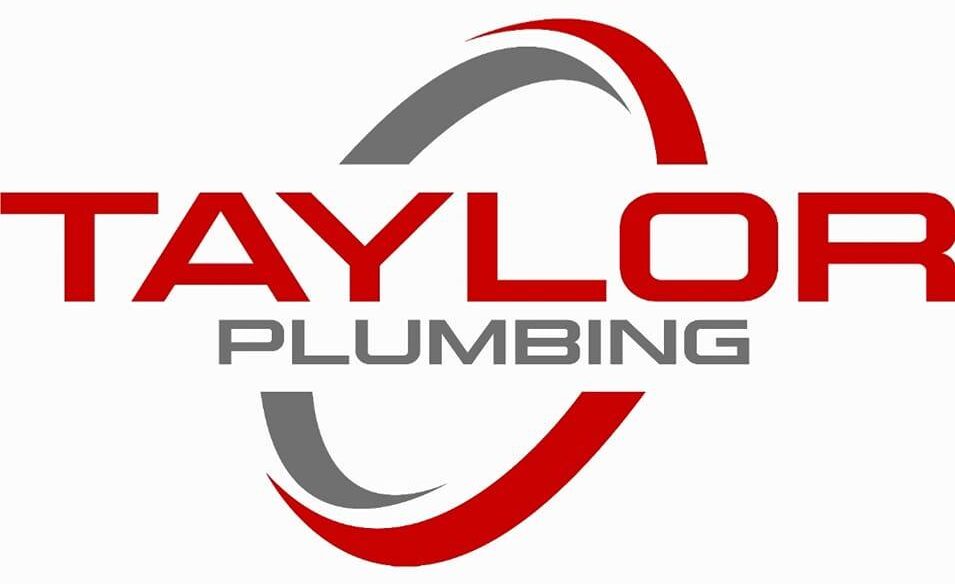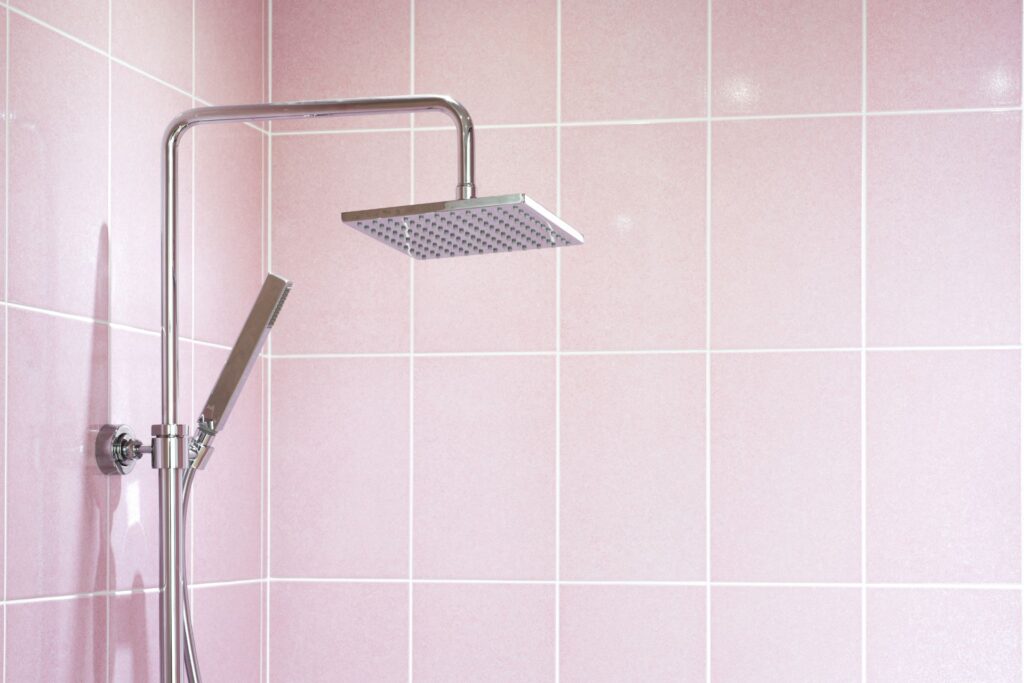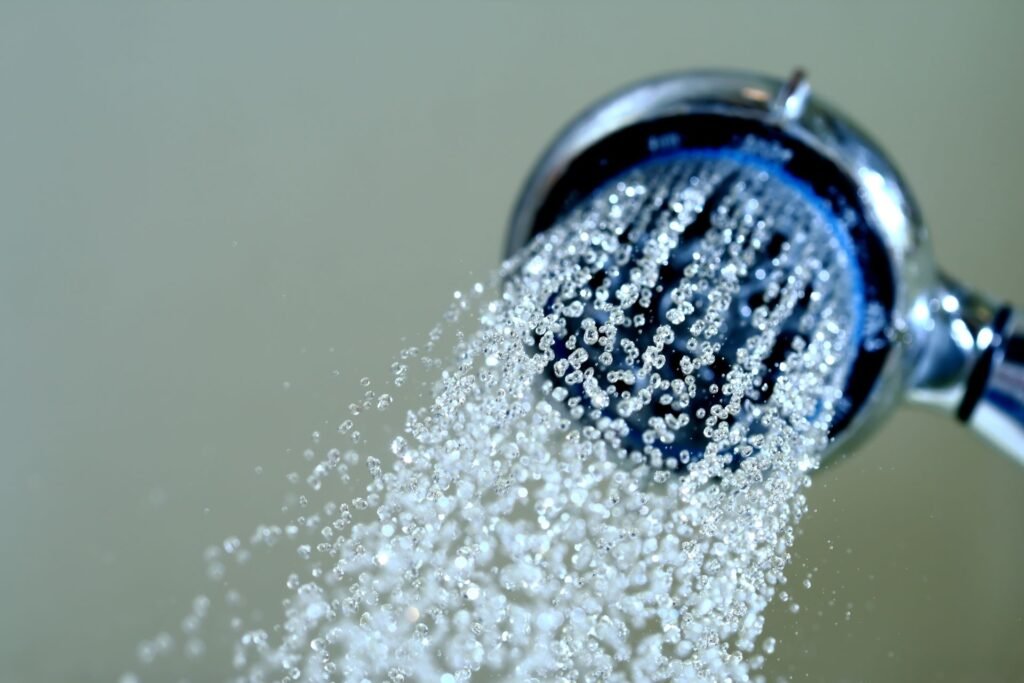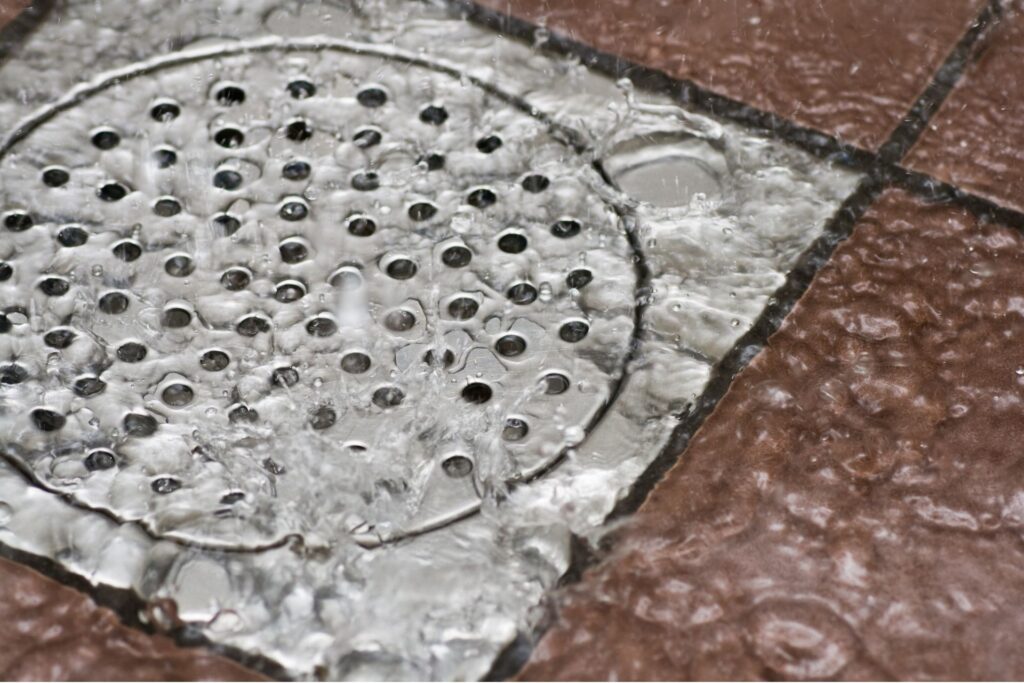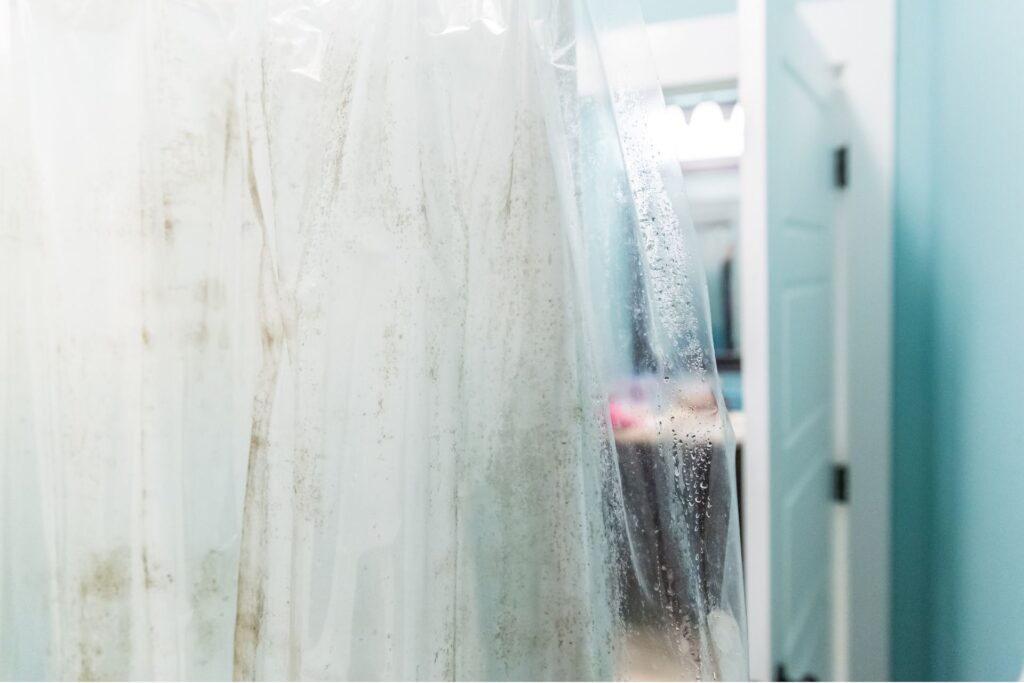Ultimate Guide To How Much Does It Cost To Tile Your Shower NZ
Welcome to the essential guide on navigating the costs of tiling your shower, a cornerstone project in bathroom renovations that marries functionality with aesthetic appeal. As you contemplate giving your shower area a facelift, understanding the financial aspect of such an undertaking is crucial. This guide is designed to demystify the expenses involved, from the choice of tiles to labor costs, ensuring you make informed decisions. Whether you’re considering a budget-friendly update or a luxurious transformation, our comprehensive breakdown will arm you with the knowledge needed to approach this project with confidence. Join us as we explore everything from the benefits of tiling your shower to smart tips for keeping costs down, all while aiming to enhance the value and enjoyment of your home.
On average, tiling a shower can cost anywhere from $450 to $10,000, influenced by the choice of tiles, shower size, labor costs, and design intricacies. This wide range reflects the variety of options available, from economical ceramic tiles to luxurious custom designs. Key cost factors include the type of tile (with ceramic, porcelain, and stone being popular choices), the overall dimensions of the shower area, regional variations in labor rates, and additional design elements such as intricate patterns or the inclusion of niches and benches. To navigate these costs effectively, homeowners should weigh the benefits of DIY versus professional installation, opt for tiles that offer both durability and value and allocate funds for any unforeseen expenses that may arise during the renovation process.
- Why Tile Your Shower?
- Factors Influencing The Cost Of Tiling Your Shower
- Average Cost Breakdown
- How To Save Money When Tiling Your Shower
- Preparing For Your Shower Tiling Project
- Maintenance And Longevity Of Tiled Showers
- FAQs: About How Much Does It Cost To Tile Your Shower
- Contact Our Auckland Shower Installation Specialists Now
Why Tile Your Shower?
When it comes to remodeling your bathroom, choosing the right materials can significantly impact both the functionality and aesthetic appeal of your space. Tiling your shower is a popular choice for many homeowners and for good reasons. Not only does it offer a sleek and stylish look, but it also brings a host of benefits that can enhance your bathing experience and even increase the value of your home. Let’s dive into why tiling your shower could be one of the best decisions you make for your bathroom renovation.
Enduring Elegance: The Durability of Tiled Showers
One of the foremost advantages of opting for tiled showers is their outstanding durability. Tiles, especially those made from ceramic or porcelain, are known for their ability to withstand the test of time. Unlike plastic shower enclosures or fiberglass setups that may yellow or crack over the years, a well-installed tile shower can look as good as new with minimal maintenance. This resilience to wear and tear makes tiles an economical choice in the long run, saving you from frequent renovations and repairs.
The Waterproof Wonder: Enhanced Water Resistance
Bathrooms are high-moisture environments, making water resistance a crucial factor in choosing your materials. Tiling your shower not only elevates its appearance but also provides an effective barrier against water. When properly installed, tiles and grout offer superior water resistance, protecting your walls from the damaging effects of moisture. This means less risk of mold and mildew, ensuring a cleaner and healthier bathroom environment.
Aesthetic Allure: The Beauty of Tiled Showers
The aesthetic appeal of tiled showers is undeniable. With an extensive variety of tiles available in the market, you can unleash your creativity and design a shower that perfectly matches your taste and the overall style of your bathroom. From sleek subway tiles to elegant marble and rustic terracotta, the possibilities are endless. The right tile can transform your shower into a luxurious retreat, adding a touch of sophistication to your daily routine.
Customization at Its Best: Variety and Versatility
The variety of tiles is not just limited to materials but also includes an array of colors, sizes, patterns, and finishes. This versatility allows for endless customization options, enabling you to create a unique shower that reflects your style. Whether you’re aiming for a modern, minimalist look or a more traditional design, the right tile can make your vision come to life.
Adding Value to Your Home
Beyond the immediate benefits of durability, water resistance, and aesthetic appeal, tiling your shower can also contribute to an increase in your home’s value. A well-designed and meticulously tiled shower is a desirable feature for potential buyers, making it a smart investment if you’re considering selling your home in the future. It’s not just a renovation; it’s an investment in the value and appeal of your home.
In conclusion, tiling your shower presents a multitude of benefits that go beyond mere aesthetics. It’s about making a practical, durable, and stylish choice that will serve you well over the years. Whether you’re embarking on a major bathroom renovation or simply looking to update your space, consider the impact that tiling your shower can have. Not only will it enhance the functionality and appearance of your bathroom, but it can also add significant value to your home. Remember, the right tile can transform a simple shower into a luxurious escape, making every day feel like a spa day.
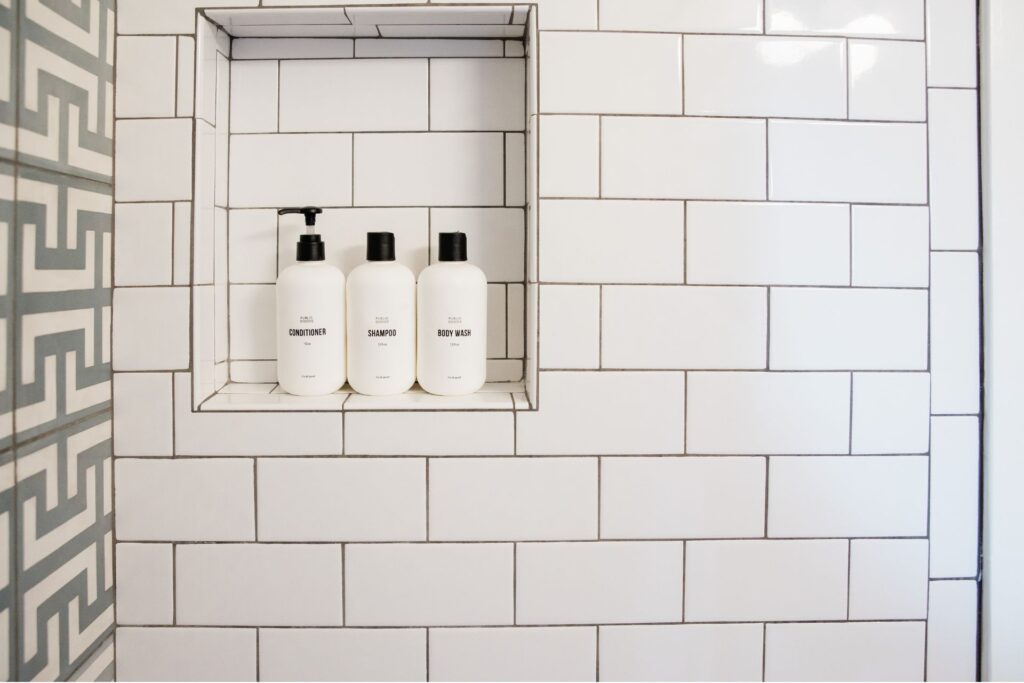
Factors Influencing The Cost Of Tiling Your Shower
When considering renovating your bathroom, specifically the shower area, understanding the various factors that influence the cost is crucial. This guide is designed to provide you with a comprehensive breakdown of what affects the pricing of tiling your shower, ensuring you can make informed decisions and plan your budget effectively. Whether you’re a homeowner looking to upgrade your space or someone interested in the intricacies of bathroom remodeling, this information is tailored to help you navigate through the process seamlessly.
Type of Tiles
The selection of tiles plays a significant role in determining the overall cost of tiling your shower. Tiles come in various materials, each with its price range and aesthetic appeal. Ceramic tiles are popular due to their affordability and wide range of designs. Porcelain tiles, while similar in appearance to ceramic, are denser and less porous, making them more durable but also more expensive. Stone tiles, such as marble, granite, or slate, offer a luxurious look but come with a higher price tag due to their natural qualities and more complex installation requirements. Your choice should balance between your desired look and your budget.
Size of Your Shower
The dimensions of your shower directly impact the material and labor costs. Larger showers require more tiles, which increases the material expenses. Additionally, a bigger area means more time is needed for installation, affecting labor costs. It’s not just about the floor space but also the height of the walls you plan to tile. Measuring your shower area accurately is essential in estimating the amount of material needed and, consequently, the overall cost.
Labor Costs
Labor costs can vary significantly based on the scope of the project. This includes preparation work (such as removing old tiles and preparing the surface), installation, and applying finishing touches like grouting and sealing. The rates charged by professionals can differ based on their experience, the complexity of the job, and their location. It’s advisable to get multiple quotes to find a balance between quality and cost. Remember, skilled labor might cost more upfront but can save you money in the long run by avoiding repairs due to subpar workmanship.
Complexity of the Design
The complexity of your chosen design can also affect the cost. Simple, straight patterns are quicker and easier to install, which could lower labor costs. However, intricate designs, the inclusion of niches or benches, or using tiles of varying sizes can increase the time and skill needed for the project, thus raising the price. These elements, while potentially adding to the cost, can enhance the functionality and aesthetic appeal of your shower, making it a worthwhile investment.
Location
Your geographical location influences the overall cost of tiling your shower. Labor rates can vary widely from one region to another. Urban areas typically have higher labor costs compared to rural locations. Additionally, the availability of certain tile materials in your vicinity can affect material costs, as importing specialty tiles may incur higher charges. It’s beneficial to research local trends in labor costs and material prices to set a realistic budget for your project.
Understanding these factors allows you to better navigate the costs associated with tiling your shower. By considering the type of tiles, the size of your shower, labor costs, the complexity of the design, and your location, you can create a budget that aligns with your vision for your bathroom renovation. Remember, investing in quality materials and skilled labor can enhance the durability and appearance of your shower, providing value for years to come.
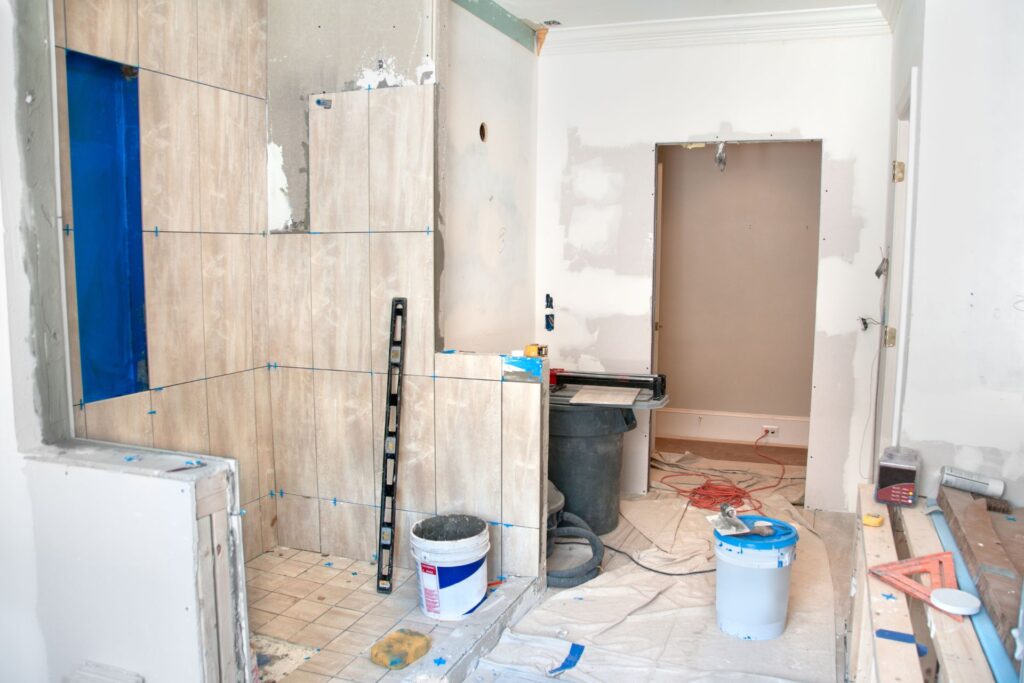
Average Cost Breakdown
When considering a bathroom renovation or specifically looking to tile a shower, understanding the cost breakdown is crucial for planning your budget effectively. This section aims to demystify the expenses involved in shower tiling, ranging from budget-friendly options to more luxurious choices. Our goal is not just to provide numbers but to help you make informed decisions on where to allocate your funds for the best value.
Understanding the Cost Spectrum
Tiling a shower can significantly vary in cost, influenced by choices in materials, design complexity, and additional features. Let’s break it down:
Budget Options: For those looking to refresh their shower without a hefty price tag, budget options can range from $1,000 to $3,000. This includes basic ceramic tiles and minimal design complexities.
Mid-Range Choices: If you’re aiming for a bit more flair without going overboard, expect to spend between $3,000 to $6,000. This bracket can afford you better-quality tiles like porcelain and enhanced designs.
Luxury Selections: For a shower that stands as a centerpiece of your bathroom, luxury options start from $6,000 and can go upwards of $10,000, incorporating high-end materials like natural stone, intricate patterns, and premium features.
Detailed Cost Breakdown
To give you a clearer picture, let’s dissect the average costs associated with tiling a shower. These figures are meant to guide and help you gauge where your project might land within the spectrum.
Materials
- Ceramic Tiles: $0.50 to $5 per square foot
- Porcelain Tiles: $3 to $10 per square foot
- Natural Stone Tiles: $5 to $20 per square foot
- Labor: The cost of labor can vary widely based on your location, the complexity of the job, and the contractor’s experience. On average, you might see charges from $10 to $20 per square foot for installation.
Additional Features
Waterproofing Membrane: Essential for preventing water damage and mold growth, the material and installation can cost between $500 to $1,000.
Custom Design Work: Adding unique patterns or using various tile sizes can increase the complexity and cost, potentially adding 10% to 20% more to your labor expenses.
By understanding the average costs involved in tiling a shower, you can better navigate your renovation project, making choices that align with both your aesthetic desires and budget constraints. Remember, investing in quality materials and skilled labor can enhance the durability and value of your bathroom. Planning effectively and allocating your budget wisely will ensure that your shower renovation meets your expectations without unwelcome financial surprises.

How To Save Money When Tiling Your Shower
In the journey of revamping your shower space, one of the key considerations is how to strike the perfect balance between affordability and quality. This section dives deep into navigating the cost-efficient path through DIY vs. professional installation, selecting the right tiles for both value and quality and preparing for unexpected expenses.
DIY vs. Professional Installation: Finding the Sweet Spot
The decision between DIY and hiring professionals for your shower tiling project carries significant weight in your budgeting plan. Understanding the pros and cons of each option is crucial.
DIY Installation: This route is tempting for those looking to cut costs. It’s feasible if you have a basic skill set in tiling and a willingness to learn. The internet is awash with tutorials and step-by-step guides that can assist you through the process. The major upside is the potential savings on labor costs. However, the downsides include the risk of improper installation, which can lead to water damage and costly repairs down the line. Before embarking on this journey, honestly assess your skill level and the complexity of your project.
Professional Installation: Opting for a skilled tradesperson can elevate the quality and durability of your shower tiling. Professionals bring expertise, efficiency, and the right tools to the table, ensuring that the job is done correctly the first time. This choice is especially prudent for complex designs or if you’re not confident in your DIY skills. While it’s an upfront investment, it can prevent expensive mistakes and add value to your home. To make this option more budget-friendly, obtain multiple quotes and check references to find a reliable yet cost-effective contractor.
Choosing the Right Tiles: Balancing Quality with Affordability
Tiles come in an array of materials, designs, and prices. Here’s how to navigate this selection for the best deal:
Research Materials: Porcelain and ceramic tiles are popular for their durability and range of designs. While porcelain is slightly pricier, it’s also more water-resistant than ceramic. Consider the long-term benefits of each option.
Consider Aesthetics vs. Functionality: While it’s tempting to choose tiles based solely on their appearance, consider their slip resistance and ease of maintenance. Sometimes, a slightly more expensive tile can offer a longer-lasting value.
Bulk Purchases and Sales: Retailers often offer discounts on bulk purchases. Additionally, keeping an eye out for sales can lead to significant savings on high-quality tiles.
Budgeting for Unexpected Expenses: The Safety Net
No renovation project is without its surprises. Setting aside a contingency fund is a wise strategy to handle unforeseen costs without derailing your project. A general rule of thumb is to allocate an additional 10-20% of your total budget for these expenses. Whether it’s an issue uncovered during tile removal or the need for additional materials, having a financial cushion can keep your project on track and stress-free.
In conclusion, tiling your shower doesn’t have to break the bank. By carefully weighing the decision between DIY and professional installation, choosing the right tiles, and preparing for unexpected expenses, you can achieve a stunning result that adds value to your home without compromising on quality. This strategic approach to shower renovation ensures you enjoy both the process and the final product, making your investment well worth it.
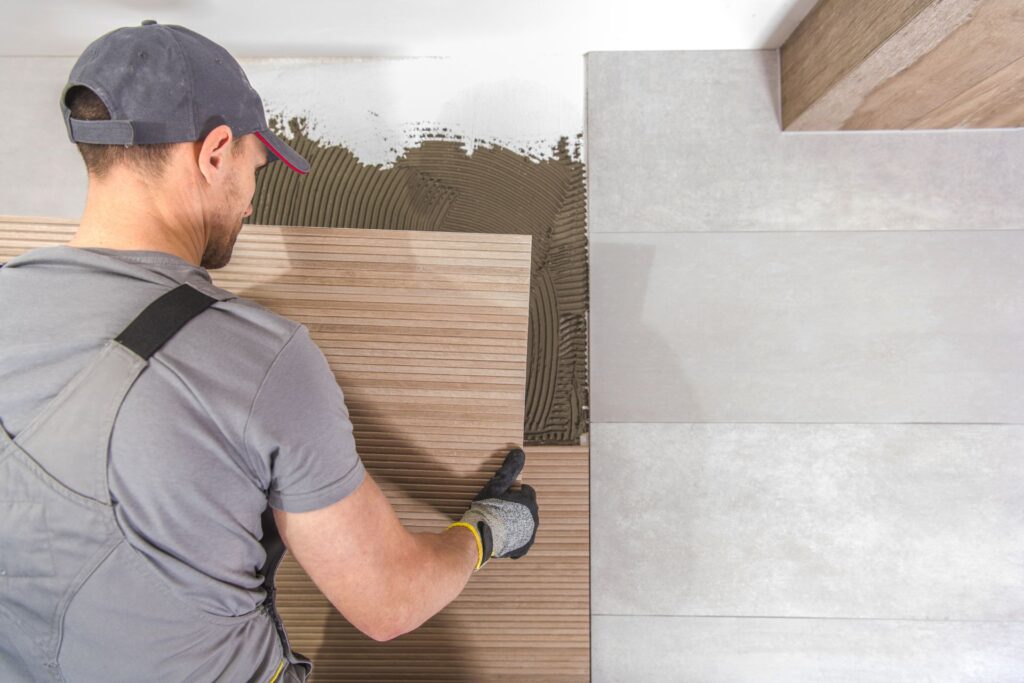
Preparing For Your Shower Tiling Project
Embarking on a shower tiling project can be both exciting and daunting. It’s a fantastic opportunity to refresh your space and add personal touches to your bathroom. However, diving into the project without proper preparation can lead to unnecessary headaches and expenses. To ensure a smooth and successful tiling endeavor, here’s a comprehensive guide that walks you through the essential steps you should take before beginning your shower tiling project. This guide aims to be insightful and engaging, providing you with all the knowledge you need to get started on the right foot.
Step 1: Measure Your Space Accurately
The first step in preparing for your shower tiling project is to measure the area you plan to tile accurately. This includes the height, width, and depth of your shower walls, as well as the floor area if you plan to tile that as well. Accurate measurements are crucial as they determine how much time you’ll need to purchase. It’s advisable to buy an extra 10% of materials to account for any cuts, breaks, or future repairs. This initial step sets the foundation for your project, ensuring you’re not left with too much or too little material.
Step 2: Choose Your Materials Wisely
Selecting the right materials for your shower tiling project is more than just picking a color or pattern that appeals to you. You’ll need to consider the durability of the tiles, their resistance to moisture, ease of maintenance, and, of course, their aesthetic appeal. Ceramic and porcelain tiles are popular choices due to their durability and wide range of designs. Additionally, think about the grout, as it plays a crucial role in the overall look and longevity of your tiling. Choosing materials that complement your bathroom’s overall design while ensuring practicality and longevity is key.
Step 3: Find a Reputable Contractor
While DIY is an option, hiring a reputable contractor can make a significant difference, especially if you’re aiming for a flawless finish. Finding a skilled professional requires thorough research. Start by seeking recommendations from friends or family members who have undergone similar projects. Online reviews and contractor websites can also provide valuable insights into their work quality and reliability. Ensure the contractor is licensed, insured, and willing to provide references. A good contractor will not only deliver high-quality workmanship but also offer valuable advice on materials and design, ultimately saving you time and money.
Making the Right Preparations
Preparing for your shower tiling project is a step-by-step process that requires attention to detail and careful planning. From accurately measuring your space and choosing the right materials to finding a reputable contractor, each step is integral to the project’s success. By taking the time to thoroughly prepare, you ensure a smoother process, avoid common pitfalls, and are more likely to be satisfied with the result. Remember, a well-planned project is the foundation of a beautifully tiled shower that you’ll enjoy for years to come.
Incorporating these steps into your preparation phase will not only enhance the efficiency of your project but also ensure a higher level of satisfaction with the completed work. Whether you’re a seasoned DIY enthusiast or opting to hire professionals, understanding the importance of preparation in your shower tiling project is crucial. It’s the first step towards transforming your bathroom into a space that reflects your style and meets your functional needs.
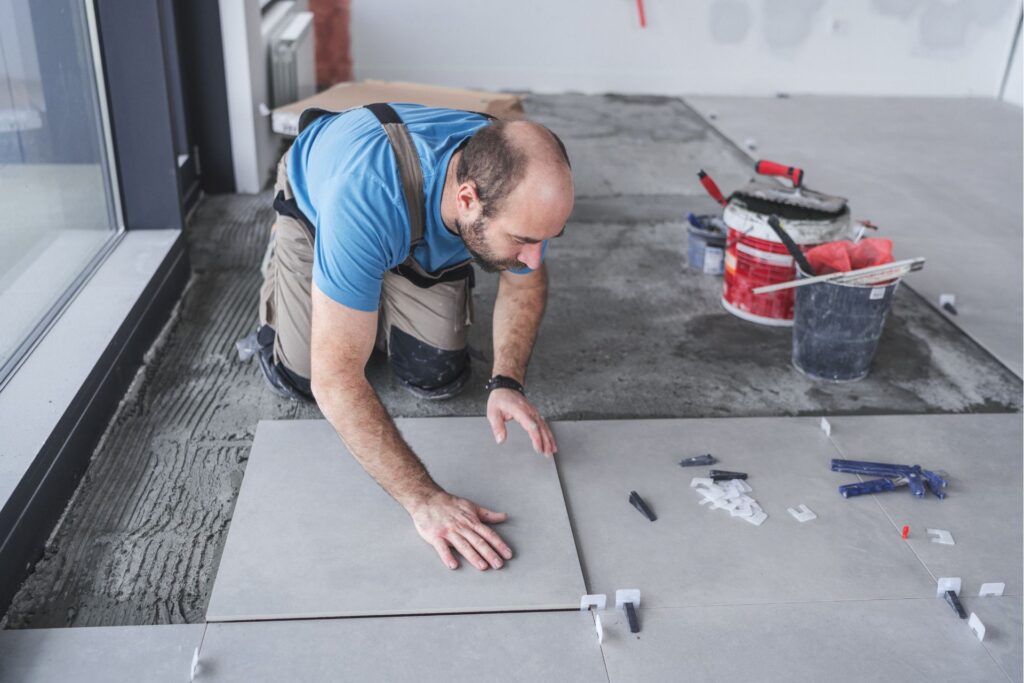
Maintenance And Longevity Of Tiled Showers
When it comes to maintaining the elegance and functionality of your bathroom, the tiled shower demands special attention. Its ability to withstand daily use while retaining its aesthetic appeal hinges significantly on the maintenance practices employed. In this section, we delve into the importance of proper maintenance and offer practical tips to ensure your tiled shower remains a pristine sanctuary for relaxation and rejuvenation.
The Importance of Proper Maintenance
The longevity and appearance of a tiled shower are directly influenced by the care it receives. Tiles, while durable, are susceptible to the buildup of soap scum, mold, and mildew, which not only detracts from their beauty but can also compromise their integrity over time. Regular and proper maintenance is key to preventing these issues, ensuring the shower remains a clean, healthy, and inviting space.
Cleaning and Caring for Different Types of Tiles
The approach to cleaning and maintaining tiled showers varies depending on the type of tile used. Here are tips tailored to the most common types of tiles found in showers:
Ceramic and Porcelain Tiles
Daily Cleaning: Wipe down tiles with a damp cloth or sponge daily to prevent soap scum buildup.
Weekly Deep Cleaning: Use a mild, pH-neutral cleaner specifically designed for ceramic or porcelain tiles. Avoid using abrasive cleaners or pads that can scratch the surface.
Grout Care: Apply a grout sealer annually to protect against moisture and stains. Clean grout lines with a soft brush and a mixture of water and hydrogen peroxide to keep them white and mold-free.
Natural Stone Tiles (Marble, Slate, Granite)
Gentle Cleaning: Use cleaners specifically formulated for natural stone. Acidic or alkaline cleaners can etch the surface of stone tiles.
Sealing: Seal stone tiles periodically to protect against stains and water damage. The frequency of sealing depends on the type of stone and the level of shower use.
Avoid Standing Water: After use, squeegee or towel-dry stone tiles to prevent water spots and mineral deposits.
Glass Tiles
Streak-Free Shine: Use a vinegar-water solution or a glass cleaner to maintain the sparkle of glass tiles. Wipe with a soft cloth or a squeegee to avoid streaks.
Soft Cleaning Tools: To prevent scratches, clean glass tiles with a soft sponge or cloth. Avoid harsh scouring pads.
Preventative Measures for Longevity
Ventilation: Ensure good airflow in the bathroom to reduce humidity levels, which can mitigate mold and mildew growth.
Prompt Repairs: Address any cracked tiles or compromised grout lines promptly to prevent water damage behind the tiles.
Water Softeners: If you have hard water, consider installing a water softener to minimize mineral buildup on tiles.
In summary, the longevity and beauty of a tiled shower significantly depend on regular maintenance and the right care approach tailored to the type of tiles. By adopting these cleaning practices and preventative measures, you can enjoy a functional, stylish shower space that stands the test of time. Whether it’s the daily wipe-down routine or the periodic sealing of tiles, these efforts contribute to a well-maintained bathroom that offers both comfort and durability.
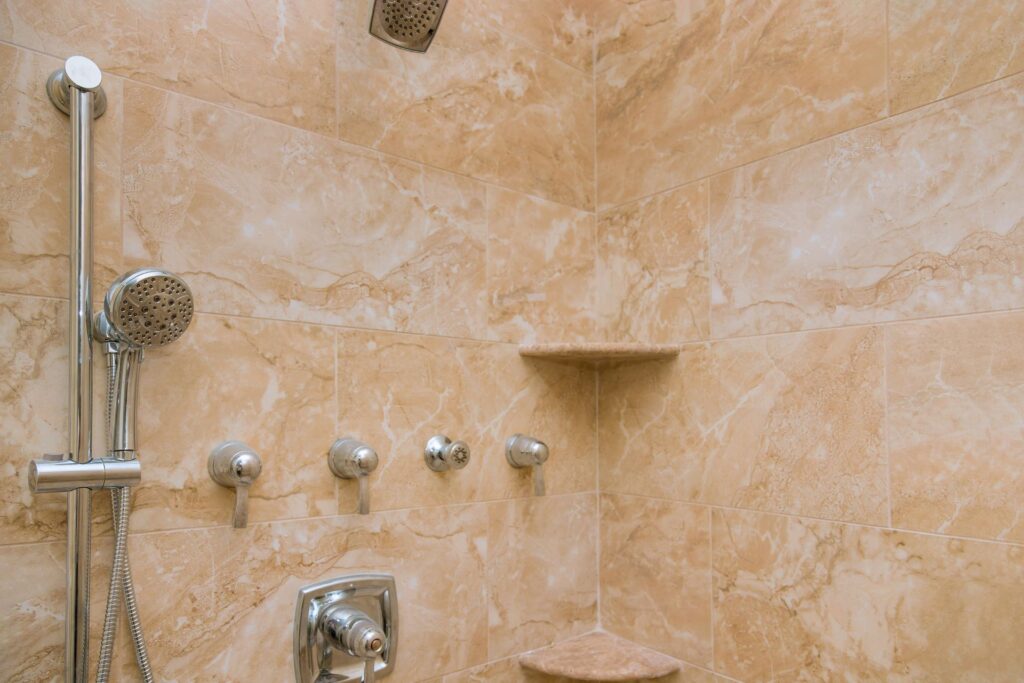
FAQs: About How Much Does It Cost To Tile Your Shower
On average, the cost to tile a shower ranges from $450 to $10,000. This broad spectrum accounts for various factors such as tile material, shower size, labor costs, and design complexity, from simple layouts to luxury custom designs.
The main factors include the type of tile (ceramic, porcelain, stone, etc.), size of the shower area, labor rates (which vary by region), design complexity (like patterns or niches), and whether additional features like waterproofing are needed.
Yes, DIY tiling can save on labor costs, but it’s important to have the right tools and a basic understanding of the process. Complex designs and waterproofing should be handled by professionals to avoid costly mistakes.
Ceramic tiles are generally the most budget-friendly option, offering a good balance between cost, durability, and aesthetic variety. Porcelain tiles, while slightly more expensive, provide higher durability and water resistance.
Labor costs can significantly affect the total cost, potentially accounting for 50% or more of the project’s budget, depending on the job’s complexity and the rates in your area.
To reduce costs, consider simpler tile designs, doing part of the work yourself (like demolition or preparation), and shopping around for both materials and labor quotes. Choosing mid-range tiles and minimizing complex features can also help.
The time it takes can vary widely, from two days to a week, depending on the shower’s size, tile type, and complexity of the design. Preparation and drying times also contribute to the project duration.
Tiling over existing tiles is possible if the underlying tiles are in good condition and properly adhered to the wall. However, this approach may create issues with the thickness of the walls and the fit of fixtures.
Consider factors like moisture resistance, durability, ease of cleaning, and slip resistance. Aesthetically, the tile should complement the overall bathroom design. Functionally, porcelain and glazed ceramic tiles are popular choices for their water resistance and durability.
Unexpected costs can arise from issues like water damage repair, mold remediation, or structural problems uncovered during renovation. It’s wise to set aside an additional 10-20% of your budget for unforeseen expenses.
Contact Our Auckland Shower Installation Specialists Now
About the Author:
Mike Veail is a recognized digital marketing expert with over 6 years of experience in helping tradespeople and small businesses thrive online. A former quantity surveyor, Mike combines deep industry knowledge with hands-on expertise in SEO and Google Ads. His marketing strategies are tailored to the specific needs of the trades sector, helping businesses increase visibility and generate more leads through proven, ethical methods.
Mike has successfully partnered with numerous companies, establishing a track record of delivering measurable results. His work has been featured across various platforms that showcase his expertise in lead generation and online marketing for the trades sector.
Learn more about Mike's experience and services at https://theleadguy.online or follow him on social media:
